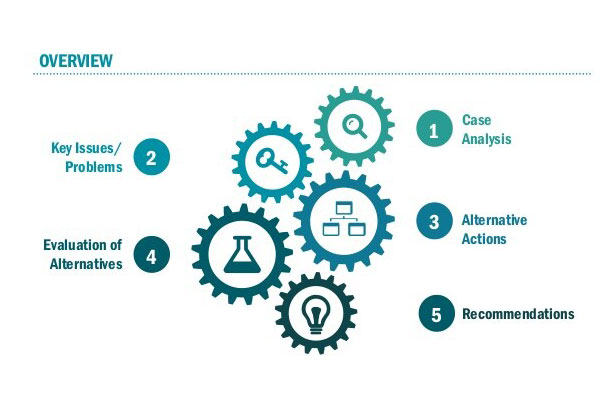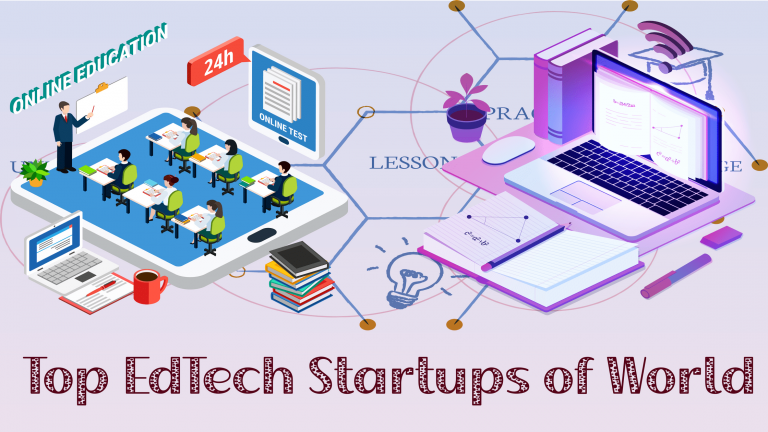Technological and educational advancements are helping to secure a favorable and much more accessible tomorrow. Using technology in education makes learning more convenient, efficient, and enjoyable. In addition, it offers kids a voice. On top of all of this, the Ed-tech industry is booming with new products and services. A new generation of education companies is focusing on customizing their offerings. And so it communicates on such an individual basis with the end-users.
As author and educator George Couros put it, “Technology will never replace great teachers, but technology in the hands of great teachers is transformational.”
As the Ed-tech sector matures, it includes any and every technology that promotes learning for both children and adults. For educators, this includes classroom evaluation tools, skills training crowdfunding platforms, even eBooks that are reader-adaptive.
What is EdTech?
When IT technologies are introduced into the classroom, a much more compelling, comprehensive and personalized learning environment is created. There are now iPads, dynamic online classes, and even automatons that can stay focused and capture lessons for learners who are sick in inclusive classrooms.
92 percent of instructors think that technology will have a profound influence on the way professionals teach throughout the coming years. There are several advantages to Ed-tech , including improved communication, cooperation and overall quality.

Why EdTech?
As Ed-tech tools proliferate, classrooms are being transformed in a number of ways. Robots in Ed-tech make it easier for students to remain engaged via entertaining types of education. Digital classrooms for kids, whether they’re at school, on the bus, or at home, are being welcomed by IoT gadgets. Automation and blockchain technologies are even helping instructors grade exams and hold students responsible for assignments.
As Ed-tech has grown in popularity, its ability to scale individual learning has been crucial. Students learn in a variety of ways, including by interacting with their peers and instructors, as well as by expressing their passion for the same topics in different ways. The speed and manner of learning is different for everyone.
Learning objectives and educational experiences may be customized using Ed-tech technologies, fostering a feeling of inclusiveness and improving the learning skills of all students, regardless of their generation or cognitive ability.
Tablets and cloud-enabled technologies encourage cooperation in the classroom. Tablets loaded with educational games and online courses offer youngsters the tools they need to work together to solve issues. Apps that operate in the cloud allow students to share assignments, discuss ideas, ask for assistance, and submit homework.
Traditional classrooms and learning are being transformed by Ed-tech. Lessons may now be viewed on-demand through video lectures or learning applications, allowing students to collaborate on group projects during class. Self-learning, creativity, and a feeling of teamwork are some of the benefits of this kind of learning.
Students may self-monitor class loudness using applications that notify parents and students about upcoming projects or homework assignments. It has been shown that adding management tools to the classroom creates a less chaotic and more collaborative atmosphere.
To evaluate their pupils’ abilities and opportunities for development, teachers spend endless hours trying to do so. This can all be changed using Ed-tech. Students’ abilities and needs are continuously assessed by a variety of tools, data platforms, and applications, which then transmit the information to teachers.
Top EdTech Startups of World
More than the USD 17 billion was produced by the worldwide Ed-tech sector alone in 2017. In 2020, Asia controls 23 percent of the worldwide Ed-tech market, as per the market analysis experts. Market revenue for e-learning worldwide is expected to reach USD 271 billion through 2022.
There is a lot of Ed-tech startups currently running on the global market. Let’s look at some of these Ed-tech startups which becomes a rising elephant in the global market. These Ed-tech startups not only prove sheer excellence in the sector of education but also prove their worth in the global business market developed on the basis of education.
Coursera

One of the greatest instances of how Ed-tech may be used to offer universal access to education is Coursera, an online learning platform. Coursera has been able to link the teacher-student community around the world by collaborating with premier institutions and organizations.
Leading venture capital companies such as Kleiner Perkins Caufield & Byers, New Enterprise Associates, GSV Capital, International Finance Corporation, Laureate Education Inc., and Learn Capital have invested in one of the world’s finest education businesses.
More than 150 renowned institutions, including Stanford and Duke, offer free online courses via Coursera. More than 20 million students have used the platform’s teaching materials, auto-graded exam papers, and conversation platforms to learn about data science, philosophy, and fashion.
Byju’s

Byju’s online learning infrastructure, one of the leading Ed-tech businesses in India, was established in 2015. To finance its worldwide growth ambitions, the education technology firm has been in discussions with SoftBank and some other financiers to obtain $200-250 million. Byju’s app has more than 3 lakh yearly paid subscribers, making it a significant brand in India’s Ed-tech sector.
In addition to competitive exam preparation, Byju’s Classes also offer supplemental courses for students. As a result, students may get assistance with competitive admission examinations such as the IIT-JEE and CAT as well as GMAT and GRE as well as engineering/medical courses.
In addition, it provides online classes including tablet-based lessons with multi-testing and assessment alternatives as well as interpersonal interaction and in-depth discussion of results. In addition to study resources and scholarship, the site provides a wealth of information. For Android and IOS users, it’s a free download. A pricing model is used.
Chegg

Students in the United States owe much more than $1 trillion throughout student loan debt, while Chegg aims to ease this economic strain, especially with regard to books and other educational materials. On the site’s online platform, students may purchase, rent, and sell old textbooks for a small fee. Chegg subscribers may also get free online teaching via the service.
Chegg has three primary areas of expertise: education, business, and technology. Chegg provides learners with digital notes and topic material. With Chegg’s Ed-tech system, unlike some other firms’ platforms, students may choose for online learning. In addition to homework assistance, the program encourages students to learn for themselves via self-study. As a result, the pupils become autonomous.
Course Hero

Using online courses and exam prep, Course Hero guarantees that provision is made for graduating via an interactive learning center. There are also textbook supplies, 24/7 homework assistance, and multimedia accessible via Course Hero, which is an Ed-tech platform that provides course-specific learning material from local campuses and several of the world’s top institutions.
Student- and instructor-created study materials are available on Course Hero’s online learning platform, which was developed by a group of learners and lecturers. Using crowdsourcing, this innovative learning website provides study aids and practice problems submitted by instructors as well as teaching materials, writings, films, notebook reports, and other original resources for students. Subscribers may uncover the individual articles by submitting original papers to the portal, or they can purchase a membership.
The company boasts more than a million members who pay something from $10 through $40 a month for the service. If TechCrunch’s prediction is correct, Course Hero’s yearly revenue will be upwards of $100 million in the year 2020. Overall, Course Hero has acquired 97.4 million dollars over eight rounds of financing.
Udemy

By the end of February 2021, Udemy will have approximately 40 million learners and 70,000 teachers, as well as over 155,000 courses accessible in 65 languages. In an open marketplace, anybody may develop a course on the site. This strategy has contributed to the platform’s expanding role since its inception in 2010.
The number of course enrollments has topped 480 million, with students and teachers from 180 different countries. Every subject you can imagine is available on Udemy. Students can quickly decide which courses are worth their time based on evaluations and ratings. They take professional development to a whole different level by bringing it to the workplace.
In addition to this, Udemy has concentrated on recruiting corporate trainers to develop specialized courses for their company’s workers, too. The company has offices throughout Ireland, Turkey, Brazil and India. Udemy received $50 million through Benesse Holdings in February 2020, and another $50 million from Tencent Holdings in 2020, valuing the company at $3.25 billion, as per a press statement from Udemy.
Unacademy

There are 300,000 students using Unacademy. That makes it one of the speediest Ed-tech businesses. Its headquarters are in Bangalore, India, and Unacademy started off as a Channel on YouTube run by Gaurav Munjal. For various professional and educational admission examinations in India, the business, which was formed in 2015, has a network of more than 18,000 teachers.
Videos are provided for pupils of all grades and in all academic areas. They carefully select the instructors who can publish their video courses on a platform that students can explore. This introduces the idea of teaching pupils of a particular topic or stream customized instruction. There are live courses available for free or for a little fee.
An unnamed private business has collected money via a number of fundraising rounds. Currently, one of the most successful e-learning companies has a worth of $500 million. Unacademy received $110 million in the previous financing round. The business was estimated at $2.0 billion in December 2020.
End Note
Nowadays, especially in this pandemic situation, where all school, college & other educational sources are completely shut down then this Ed-tech startup becomes the place of faith. Moreover, these Ed-tech startups are working as a bridge between teachers & students. Day-by-day their popularity increases & it becomes a mass people’s choice when it becomes a decision about their children & their bright future.
More Ed-tech startups are running now throughout the world. But above stated Ed-tech startups create such a place that many more people are interested in Ed-tech startups. We hope you all consider those Ed-tech startups when it comes to your decision about choosing Ed-tech startups for your future.
Visit Interactive Cares by clicking below for courses like IELTS, GRE, Web Development and many more.







































